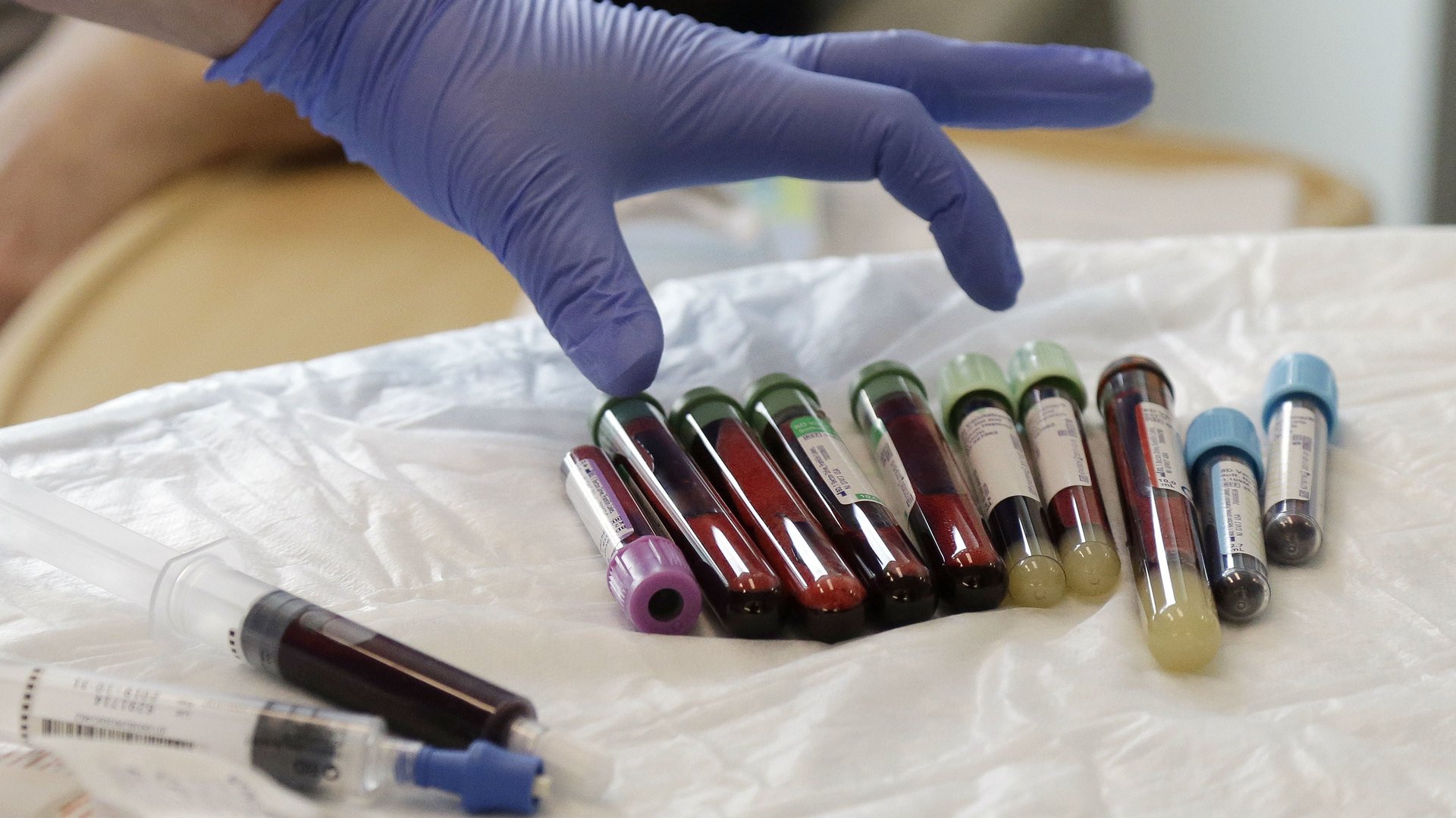The FDA just approved a revolutionary gene-modification treatment
On Wednesday, Oct. 18, the US Food and Drug Administration approved a treatment for certain types of non-Hodgkin lymphoma that uses patient’s own genetically modified immune cells to attack cancer.


On Wednesday, Oct. 18, the US Food and Drug Administration approved a treatment for certain types of non-Hodgkin lymphoma that uses patient’s own genetically modified immune cells to attack cancer.
The treatment, called Yescarta, is made by California-based Gilead Sciences. It’s a form of personalized medicine called chimeric antigen receptor T-cell (CAR-T) therapy, in which some of a patient’s white blood cells are extracted, modified, and then injected back into the patient.
Yescarta was approved after a six-month trial of 101 patients with an aggressive form of diffuse large B-cell lymphoma, a cancer that affects immune cells. This type of cancer affects roughly 30,000 Americans annually, and about two thirds of those patients can be cured with a regimen of cancer drugs. Yescarta is for those remaining 10,000 patients. In the recent trial, Yescarta cured 36% of patients completely, and in 82% of patients, their tumors shriveled down to less than half their original size.
In August of this year, the FDA approved the first iteration of CAR-T therapy for a form of childhood leukemia. The therapy, called Kymriah (and made by Novartis), had much higher success rates in clinical trials, curing 83% of patients.
CAR-T therapies are a possible treatment for patients who would otherwise be out of options, but they come with serious risks. STAT reports that in trials, Yescarta led over 40% of patients to develop anemia (low iron in the blood, essentially), and other common side effects included weakened immune systems from low white-blood cell counts. More worryingly, CAR-T therapy can set off a severe inflammatory reaction that can be fatal without additional immunosuppressive drugs. Two patients in this trial also died of severe brain damage associated with the drug. Similar side effects have been seen with the first FDA-approved CAR-T therapy.
Yescarta also comes at a hefty price: one dose of your own genetically modified cells costs $373,000. Kymriah is even more expensive, costing $475,000 for treatment.
But some analysts think these treatments are a steal at these prices. After all, they include the cost of travel to treatment centers, genetically modifying patient cells, and any drugs needed along the way. Regardless, the high price cost will still likely price out some patients who need these drugs for cancer treatment to survive.